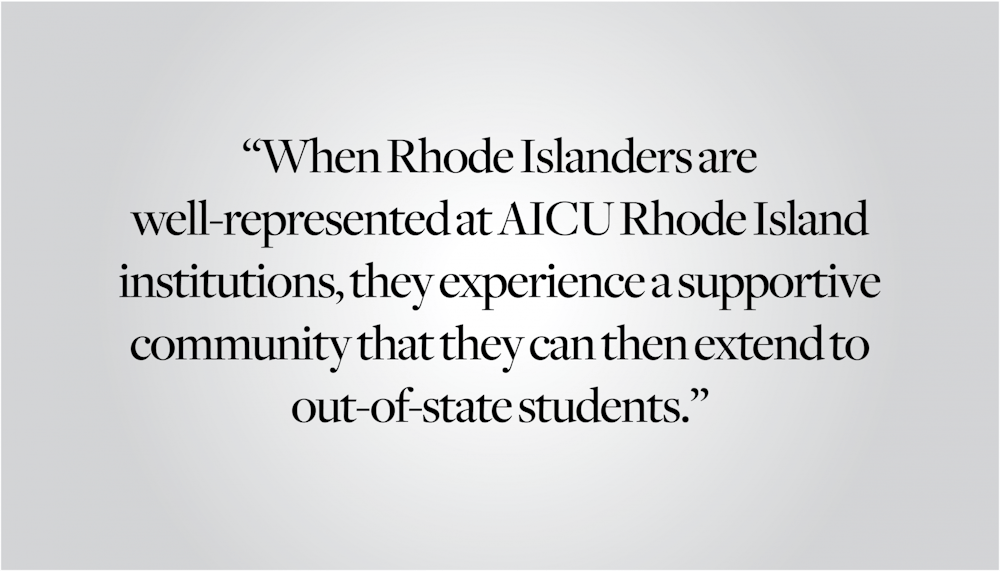Rhode Island must restore funding to the Rhode Island Promise 1.0 scholarship program for students at nonprofit institutions to its pre-pandemic level of $2 million. In March, Brown University’s Student Government Association — composed of the Class Coordinating Board, the Undergraduate Council of Students and the Undergraduate Finance Board — passed a joint resolution calling on the Rhode Island General Assembly to increase funding for the program by $500,000 in the next fiscal year.
The Rhode Island Promise redesigned the state’s existing financial aid program as a last-dollar scholarship in 2015 with the goal of making attending college more affordable for Rhode Islanders. Funds from this program can be used by any student from Rhode Island at any institution within the state, public or private. Since the program’s inception, nonprofit institutions like Brown have pledged a dollar-for-dollar match of all funds received through the program. Since 2015, the program has generated $29 million in student aid. Historically, $2 million of the total funding for the program were set aside specifically for students attending private institutions. The state cut this amount to $1.5 million beginning in the 2021 fiscal year and the number has remained at that level ever since, to the great detriment of both students and the state.
According to a report from the Association of Independent Colleges and Universities of Rhode Island, we are far behind neighboring states when it comes to our state student aid program. In Massachusetts and Connecticut, students at private institutions receive $36 million and $5.7 million in state aid respectively, while Rhode Island trails behind with only $1.5 million. Only 9% percent of Rhode Island’s student aid budget goes to students at private institutions, compared to 28% in Massachusetts and 17% in Connecticut. Rhode Island must do more to support in-state college students.
Why is this important? First of all, 85% of students attending member institutions of AICU of Rhode Island come from out-of-state. According to the University’s enrollment factbook, just 6% of students at Brown are permanent residents of Rhode Island — and just 15% of students attending AICU Rhode Island institutions are Rhode Islanders. This gap must be bridged. Out-of-state students are benefitting from Rhode Island’s private higher education institutions while displacing community members — siphoning resources that would otherwise be available to Rhode Island residents.
We believe that the factor of belonging is crucial to the success of all groups. When Rhode Islanders are well-represented at AICU Rhode Island institutions, they experience a supportive community that they can then extend to out-of-state students. They create community within and between our school, Providence and Rhode Island. They remind our international and far-from-home cohort here at Brown of the crucial importance of global and local approaches to education and of the immediate stakes of engaged scholarship.
Obtaining a college degree is often the single most important step an individual can take to increase their social mobility. Increasing state student aid will increase the number of Rhode Islanders who can afford to acquire postsecondary credentials at colleges like Brown. If Rhode Island private colleges cannot offer reasonable financial aid packages, students may well attend out-of-state colleges, making it less likely that they would return to and work in Rhode Island. This would make Rhode Island vulnerable to losing a highly qualified former resident.
With the House Finance Committee still considering the budget containing the Rhode Island Promise, it is time to urge Rhode Island legislators to advocate for students from Rhode Island and increase funding for last-dollar scholarships at private colleges. If the budget is amended, and nonprofit institutions continue to match the state’s level of funding, an additional $4 million in aid would effectively be available to students from Rhode Island attending private institutions such as Brown.
Amienne Spencer-Blume ‘23 can be reached at amienne_spencer-blume@brown.edu. She is chair of UFB. Mina Sarmas ‘24 can be reached at mina_sarmas@brown.edu. She is the vice president of UCS and incoming UCS president. Carina Sandoval ‘23 can be reached at carina_sandoval@brown.edu. She is CCB senior co-president. Please send responses to this opinion to letters@browndailyherald.com and other op-eds to opinions@browndailyherald.com.





